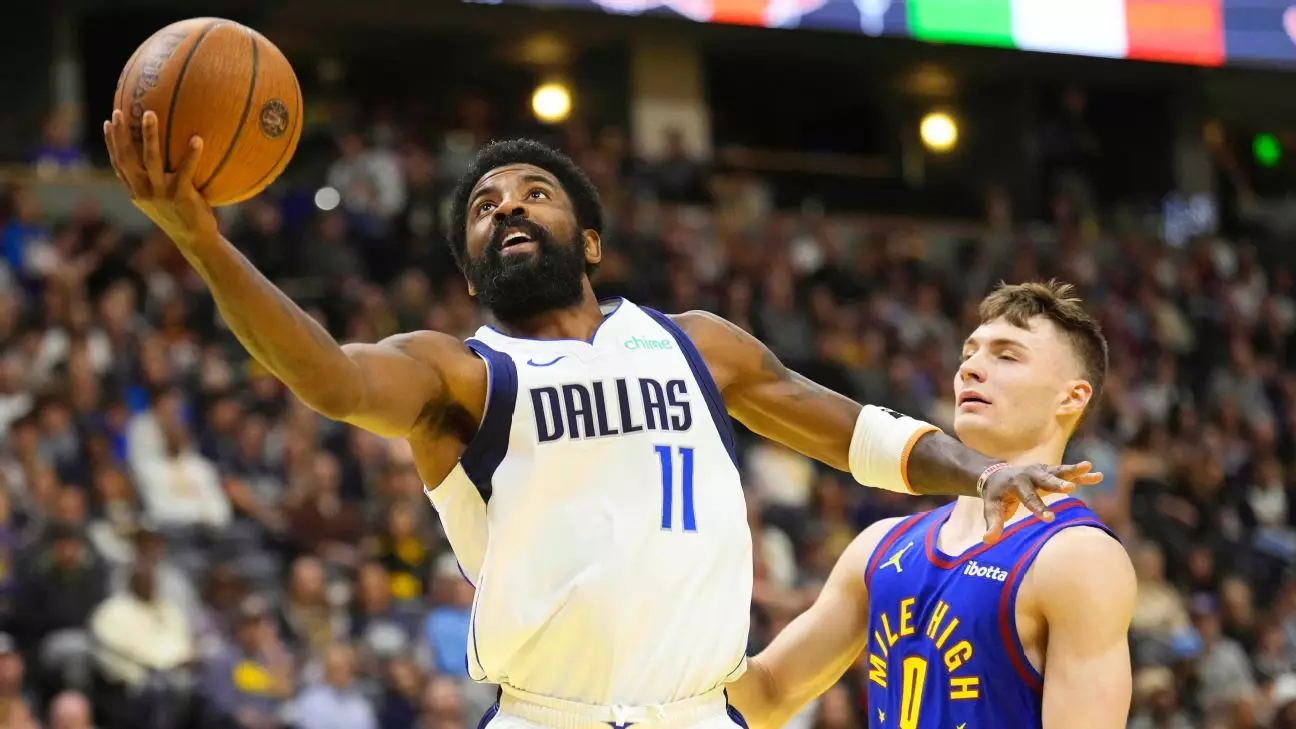Kyrie Irving’s recent return to the Dallas Mavericks lineup was marred by a disappointing performance that underscored the physical challenges he is currently facing. After being sidelined for five games, Irving stepped back onto the court against the Denver Nuggets, only to battle through a lackluster outing, culminating in an 11-point contribution on a dismal 4-of-18 shooting. The Mavs faced a significant defeat, losing 118-99, further compounding the frustration for the team and its star player. Yet, this game served not merely as a statistic; it highlighted the personal toll of Irving’s injury and the broader implications for the Mavericks amidst their ongoing struggle for postseason positioning.
The Dallas Mavericks have announced that Irving is contending with a bulging disk in his lower back—an issue that he candidly described has produced lifelong discomfort. In contrast to the diagnosis from ESPN, the team initially categorized his situation as a lumbar sprain. This discrepancy indicates a lack of clarity in injury communication, which often complicates team strategies and fan expectations. Irving’s acknowledgment of this pain, particularly in his hamstring and leg, paints a vivid picture of the day-to-day challenges he endures. Furthermore, he shared that the pain’s severity once rendered him unable to engage in meditation—a mental exercise he typically relied upon for focus and stress relief.
Irving’s approach to managing his condition seems responsible and reflective. He has actively sought out opinions from medical professionals and engaged his teammates in discussions about their experiences with back ailments, demonstrating a leadership quality beyond just his on-court skills. While he expressed a desire to play through the discomfort, acknowledging the need for caution also stands out as crucial in an athlete’s progression toward recovery. He remarked, “It’s not to the point where it’s bad enough where I need surgery, which I’m grateful to God,” highlighting an optimistic outlook amidst adversity.
Moreover, Irving’s return is set against the backdrop of another critical absence: Luka Doncic’s absence due to a calf strain. The team’s reliance on each other’s contributions means Irving’s performance is intertwined with the availability of his co-star, amplifying the stakes for Dallas as they position themselves for playoff contention. The recent ankle sprain of starter Dereck Lively II further complicates this precarious balance, leaving the Mavericks in a position where depth and resilience become pivotal.
As Irving prepares for another game against the New Orleans Pelicans, his words resonate beyond personal challenge; they call for a collective team effort. Irving’s journey signifies more than just an individual battle with injury; it serves as a larger metaphor for the Mavs as they strive to maintain cohesion and competitive spirit. In the NBA landscape, such hurdles are common, but how each player and the organization responds ultimately shapes the season’s narrative. The coming weeks will be crucial as they navigate not only Irving’s health but also how they evolve as a team in the face of adversity.

